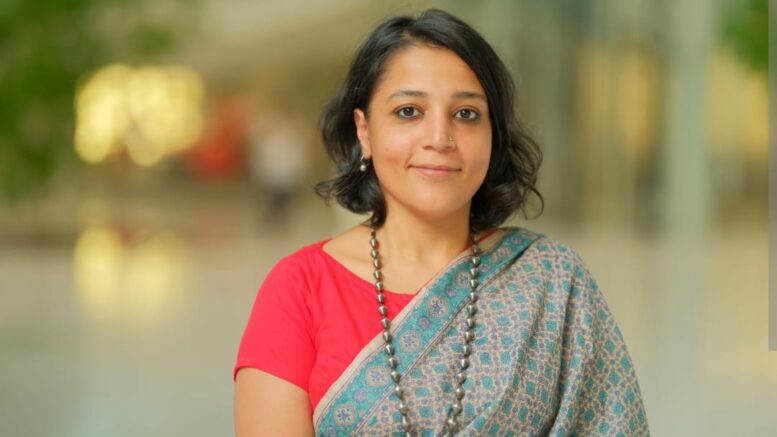Winning the War against Malaria through focused strategies – By Gayatri Divecha, Head – Good & Green, Godrej Industries Limited and Associate Companies.
MUMBAI, 29 NOVEMBER, 2022 (GPN): India is no stranger to systemic fights against endemic diseases. The country has battled everything from polio and measles to rubella. In fact, reaching a major milestone, India became polio-free in 2014. The next step? To eliminate Malaria by 2030.
India has made significant strides in its battle against malaria through collaborative partnerships and dedicated efforts from the bottom up. Statistics from the National Vector Borne Disease Control Program reveal there has been a remarkable reduction in malaria deaths across India from 1,005 in 2001 to 194 in 2017 and finally 80 in 2021.
Although there are numerous successes and the case load and fatalities have dropped drastically, there remain several factors that need to be addressed expeditiously if we are to completely eradicate this disease.
Take for instance, the data from the World Malaria Report 2021. The report points out that the rate of decline in malaria cases slowed after the onset of the COVID-19 pandemic. Furthermore, despite the obvious progress we have made in battling the disease, India still accounts for over 80% of the malaria burden of Southeast Asia.
Research has linked a 10% decrease in malaria with a 0.3% rise in GDP, while it places a $1.9 billion burden on India’s economy. Lost earnings (75%) and treatment costs (24%) account for most of this.
One area we need to address is tailoring our malaria prevention response to local needs cultural norms.
Take for instance the distribution of Long Lasting Insecticidal Nets (LLIN). LLINs are an excellent preventive measure that are affordable and easy to use. The health department authorities typically distribute two-three nets for an average family of five.
However, in most households, the man often sleeps alone on the bed (if there’s one). The woman often sleeps with the youngest child and the other children sleep together – the exception being teenage siblings who do not sleep alongside. If you consider these minor yet crucial details, the number of LLINs’ needed in a family for a family of five in this sort of a set up would be at least four to five, as opposed to the customary two or three nets distributed.
Another pain point for the state administration is the lack of a designated band of workers primarily working against malaria and other vector-borne diseases. ASHA and anganwadi workers are in charge of tracking malaria cases, providing the first line of medications and guidance to families who are often poorly trained to deal with recurring fevers and other symptoms due to socio-economic pressures.
It is no secret the workload under which ASHA and anganwadi workers operate, often for negligible remuneration. In addition to Malaria awareness and prevention, ASHA and anganwadi workers are also executing other programmes such as the POSHAN Abhiyan, Mission Indradhanush and so on. Hence, having a line of medical officers/respondents working primarily against malaria and other vector diseases is crucial. The deputed Behavior Change Communication Facilitators helped ease the ASHA worker’s burden and even provided them with the skills to raise awareness and test for cases.
Most crucially, the road to malaria prevention starts with awareness. There is a need for more awareness not only about the precautions to be taken to avoid the risk of malaria, but also the major symptoms and how to treat it. While the government has been trying to create awareness via various platform over a period of time, there is a need to involve other measures. Some of the corporates such as Godrej have developed an app for malaria treatment currently used by state health departments of India. These apps are also available in local languages for Android and iOS.
The Godrej app, for instance, provides details of the types of malaria, namely Plasmodium Falciparum, Plasmodium Vivax, or the hybrid combination of both. It further categorizes treatment as per the patient’s age to determine line and strength.
Some NGOs such as Family Health India have compiled a vast, detailed compendium of literature about Malaria – its types, symptoms, prevention, treatment, and hygiene tips in Hindi and local languages like Gondi and Halbi. All of our sources are free of cost for use by the larger public and the civic authorities.
Various government entities at the State Health departments, District Collectors, Chief Medical Officers, and the people at the Panchayat are working towards eliminating malaria in their respective regions.
Some successful first stints also drove the state departments from Chhattisgarh and Uttar Pradesh to come on board to replicate the model in their states in partnership with the corporate sector. Large conglomerates like Godrej have expanded their horizon to initiate a dedicated program focused on battling vector-borne diseases like dengue in four cities – Bhopal, Gwalior, Lucknow, and Kanpur. The training programs are also conducted to foster technological know-how of vector-borne diseases and their treatment.
There is a need for other corporates and businesses to join in this movement of complete Malaria eradication by 2030.
Improving health parameters, and access to healthcare services is a shared responsibility. As with any social issue – political will and the resolve to leave no one behind is crucial for success.
Together, we can scale up the reach and impact of the programme to make this a reality.Ends


Be the first to comment on "Winning the War against Malaria through focused strategies"